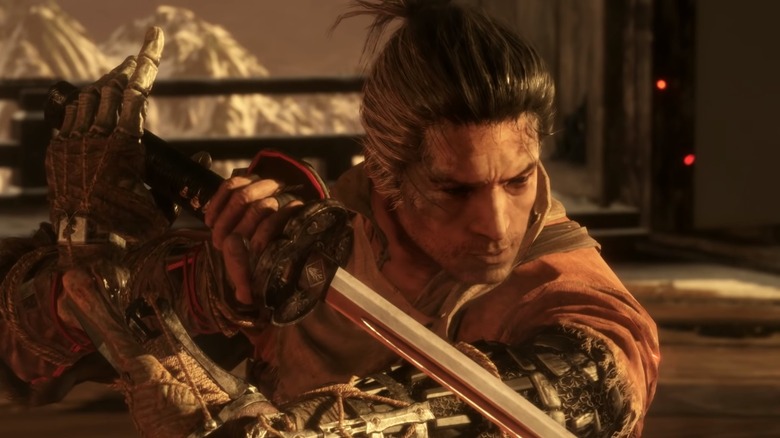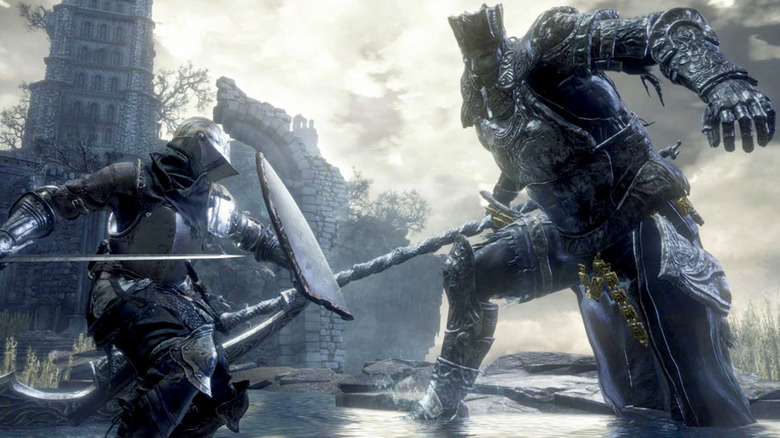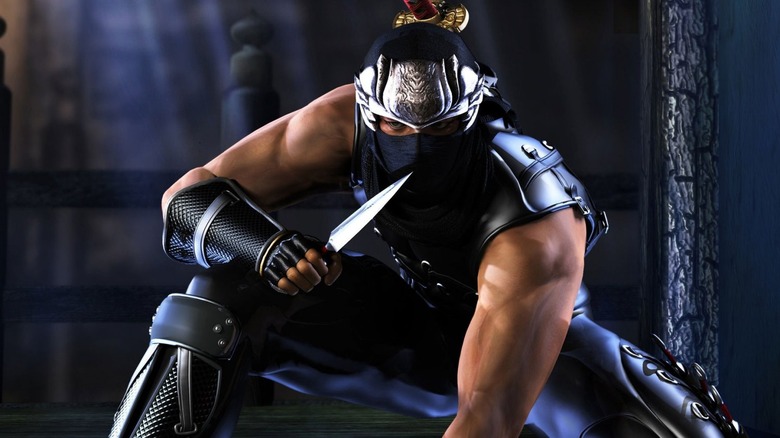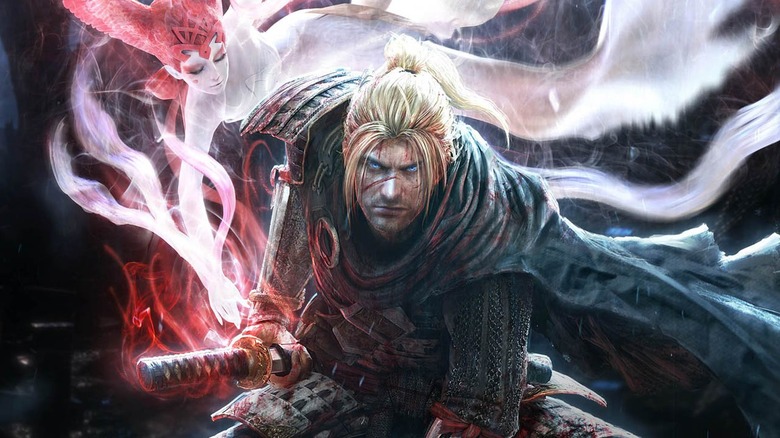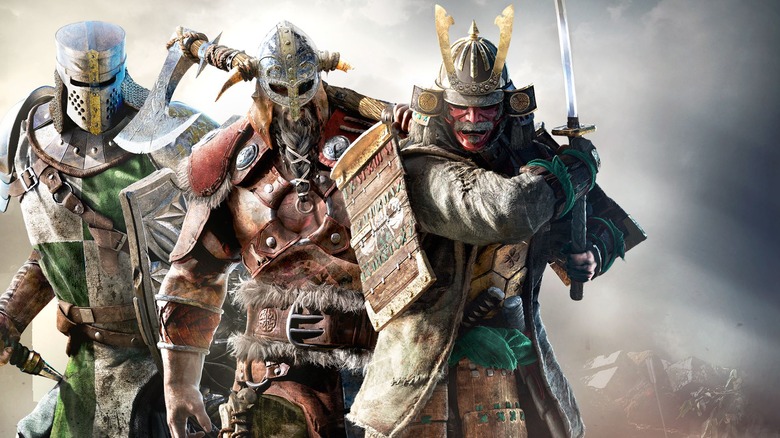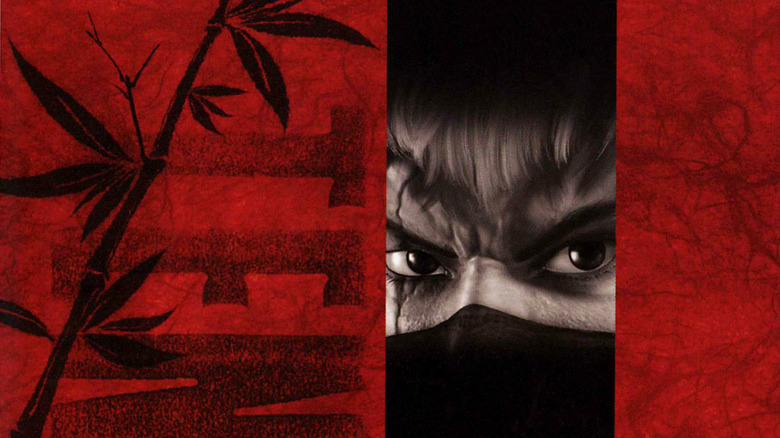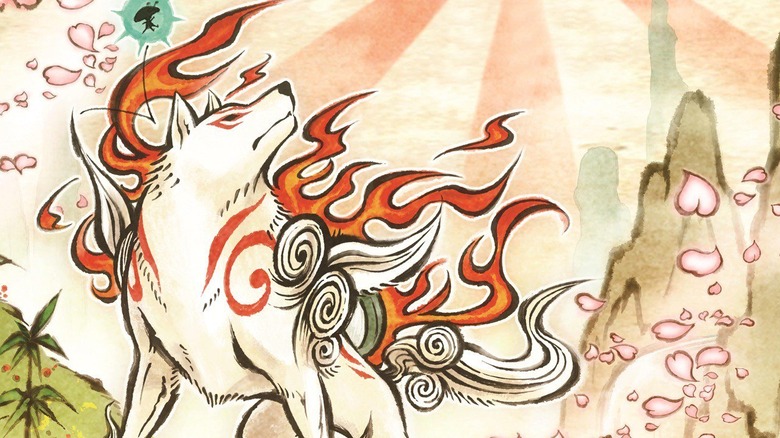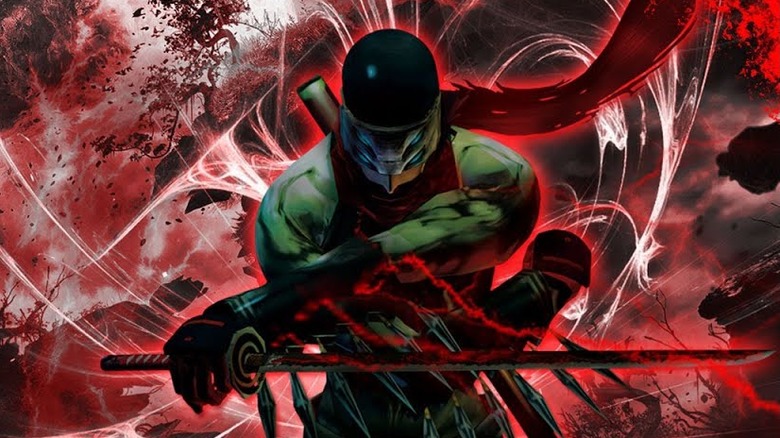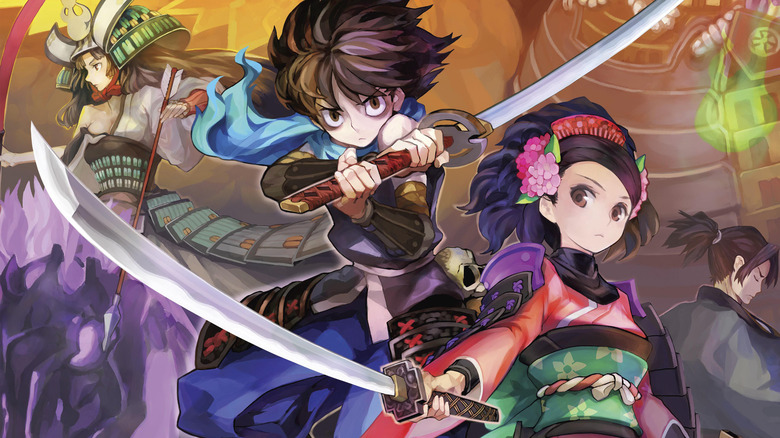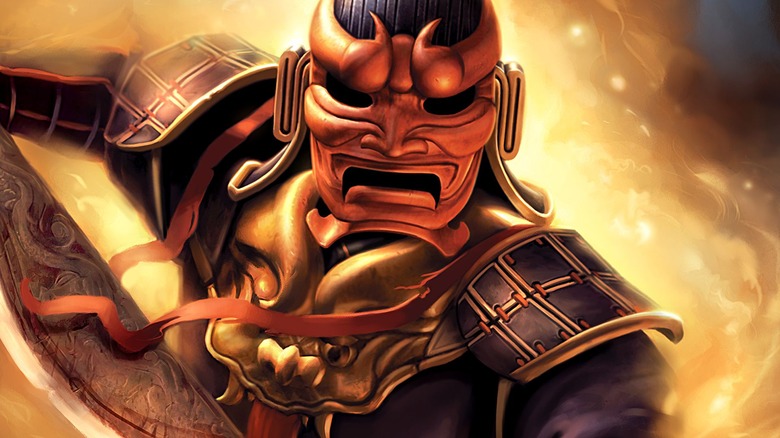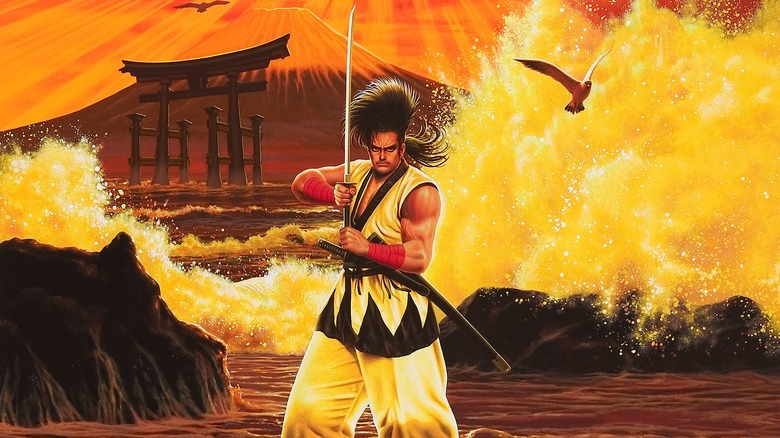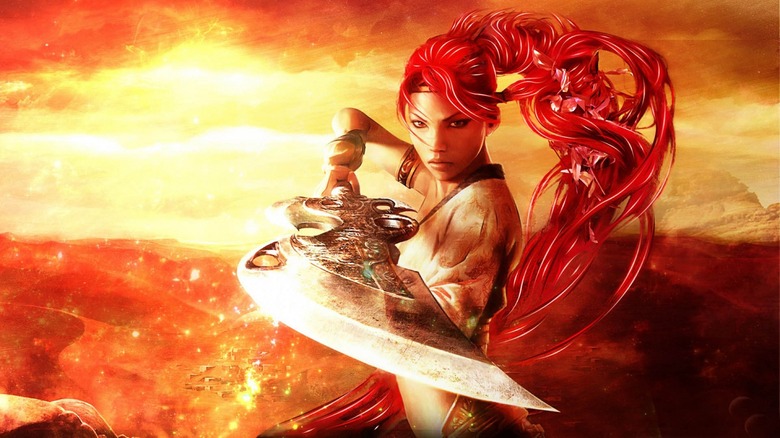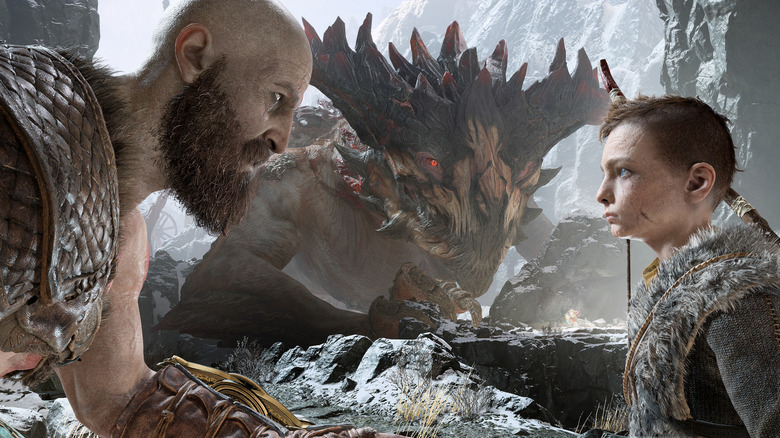Games You Need To Play If You Loved Sekiro
Chances are good that when you're done with Sekiro: Shadows Die Twice — if you're ever done — it's going to create some complicated feelings, something akin to Dorothy going back to Kansas. Sure, you're back home, but it's still black and white all of a sudden, and you bet your ass you and Auntie Em are going to have to have a serious talk about how things are gonna operate on this here farm from now on.
... but that's another story.
Point is, though, once you've lived in a game world as immersive and rich as Sekiro's, the snap back to reality is going to be rough. Luckily, we've got you covered, with a list of a few titles you could give a spin to maybe sustain some small part of the high just a little longer after the credits roll on Sekiro.
The Soulsborne games
Naturally, just heading back to the hostile embrace of Demon Souls, Dark Souls, or Bloodborne is always an option. Sure, for the hardened veterans out there who've actually played through each game multiple times, and spend weekends coming up with new character builds on Reddit, this might not cut it. But there's also plenty of folks who may have started a Souls game and never finished, or may have been too daunted to try, or tried and just couldn't deal with the slower combat. Those folks are gonna come out of Sekiro with a renewed sense of purpose and nowhere to point it.
More than this, as most of those same veterans will tell you, Sekiro is, in its own special way, harder than the Soulsborne games. Sure, you can't resurrect, and stamina becomes your enemy more than posture, but there's still a good share of applicable skills to take back to the previous games and make much more of a dent than before if you hadn't made much of one prior. Head on back, you might be surprised.
Ninja Gaiden Black
Of course, if you're looking to go faster, not slower, there's the Xbox Ninja Gaiden titles. Although there's technically three of them — yes, we are in fact pretending Yaiba: Ninja Gaiden Z never happened — we're gonna recommend Black in particular for playing things a little more grounded than its more ambitious city-centric sequel and the uglier, hostile Ninja Gaiden 3. There's a grace and respect for tradition to the first entry that should be very comfortable and familiar for folks just coming off of Sekiro. Hell, the game's second boss is basically Gyoubu Oniwa, but without that life-sucking spear-spinning attack.
More than this, though, it's a game that requires the same instincts of constant situational awareness, patience, timing, and capitalization on every moment of weakness. Veterans can attest that there are moments in Sekiro that feel like Team Ninja was preparing us for them all these years. Well, that principle definitely works the other way around.
Nioh
Of course, Team Ninja's also got a game that meets everybody halfway as well. Nioh is pretty blatant about being Team Ninja's take on Dark Souls, but unlike something like, say, Lords of the Fallen, it's a much stronger facsimile that understands and lovingly imitates FromSoftware's diabolical level design a bit more. This is the game everybody assumed Sekiro would be.
More than this, though, it's got a bit of interesting history behind it as well. The game started life as an adaptation of an unfinished Akira Kurosawa script about an actual historical figure, William Adams, a stranded British trader who ended up settling in Japan and becoming one of the scant few foreigners to serve as samurai. There's apparently not much of the original script left in the game, but there's enough going on where you see where it would be. Much of Adams' story is in here, albeit with some magical fantasy elements sprinkled on top of it. It's definitely still got its place in the world, even with Sekiro out there.
For Honor
For better or worse, For Honor is definitely a Ubisoft game. Part Dynasty Warriors, part Mark of Kri, part any of the 60,000 Total War campaigns Sega keeps pumping out every year, all crammed into that usual Ubisoft shell of "always be grinding."
But beyond the obvious reasons of "yep, there's samurai in here," For Honor asks you to take those strategies you learned having to respect every enemy in your way and apply it on the grandest scale imaginable in a persistent three-way war of dominance against Anglo-Saxon knights and pissed-off Vikings. While the game started out rather lackluster and grindy, over time, Ubisoft's put in some serious effort shaping the game into something much more engaging and cool. Two years after release, there's still the occasional rebalance happening, and it's still home to one of the most positive and engaging multiplayer communities around. It's worth a shot.
Tenchu: Wrath of Heaven
Fun fact: Sekiro actually started out as a current-gen Tenchu title before Hidetaka Miyazaki basically found himself held back by having to adhere to the rules of the license. And yet, even more than the Souls games, there's more of Tenchu in Sekiro's DNA than anything else.
The big difference, of course, is that having to slash enemies one-on-one is not only the sloppiest and most awkward way to deal with one's enemies, but the game is none too pleased if you're ever seen during your quest. It's all stealth all the time here, and Wrath of Heaven is the series' peak. There's a branching/interconnected storyline between three ninja protagonists — well, two ninja and a ninja wizard (it's a long story) — a winding plot, and a couch co-op mode that genuinely feels way ahead of its time. Oh, and of course, there's all the glorious gruesome ways to introduce hapless guards to the business end of your sword. It's also one of the more welcoming games in the series as far as difficulty goes. If you've ever heard the name and never played the game, this is the title to start with.
Okami
There's the off-chance that spending over 40 hours with grim Japanese soldiers constantly dying in a spray of arterial blood might have an effect on your mood. Fortunately, Okami exists to offer a pleasant change of pace.
Hey kids, you know those wolves that dudes keep sending after you in Sekiro that go down so easy you almost feel kinda bad? Well, what if one of those wolves was actually an all-mother wolf god whose magic paintbrush can change the seasons, turn night into day, and also send demons back to the abyssal hellhole from whence they came? Now imagine someone animated that premise using all ancient sumi-e watercolor art, and it was made by many of the folks who'd eventually go on to form Platinum Games. That's Okami, and until every living human being has experienced its joys, the world will never be a just place.
And no, Ameterasu being your Marvel vs Capcom 3 main doesn't count.
Shinobi
The 2002 Shinobi reboot has always been woefully underappreciated. Despite spawning an equally underappreciated sequel, Nightshade, the game was eventually overshadowed by Ninja Gaiden hitting on the Xbox. But there's enough that's unique and groundbreaking in Shinobi to warrant giving it a second look.
Top of the list is the Tate (pronounced ta-tay) system. See, in a very FromSoftware touch of genius, the story is that protagonist Hotsuma carries a possessed sword named Akujiki that awakens the first time it tastes evil blood. It will eventually consume Hotsuma's life unless Hotsuma keeps feeding it souls. The way you get those souls is not just by slaying enemies, but slaying every enemy in the area in quick succession in order to trigger a badass cutscene in which every enemy drops dead at the same time, and maximizes the soul energy Akujiki absorbs, keeping the monkey off Hotsuma's back. Thus, every little section of Shinobi is a puzzle of style, where players can't just kill, and can't just kill quickly, but kill artfully. It takes some getting used to, but if you're a fan of thinking about ninja-based battles in a different way, Shinobi definitely has something for you.
Muramasa: The Demon Blade
Vanillaware are still the finest purveyors of achingly gorgeous 2D side-scrolling beat-em-ups in the world, but while Dragon's Crown and Odin Sphere get all the attention, Muramasa has been waiting for a revival for years now.
Just like Odin Sphere, don't be fooled one bit by the cutesy Bratz doll character design. Essentially, take all the design principles that made Odin Sphere a cult classic for years, and apply them to a tale of ninjas, samurai, and imperial intrigue, and you have Muramasa. It's lightning fast, the combo system allows for nearly endless improvisation, the enemies are no pushovers, and all the while, a beautiful tale plays out that draws solely from Japanese mythology. Now's the part where you start bugging Atlus and Vanillaware to port this thing to the Switch where it desperately belongs.
Jade Empire
Before BioWare turned towards live-service loot shooters, even before they were breaking everyone's hearts with Star Trek-style space action dramas, they were delivering one of the few Western attempts at a distinctly Asian fantasy without embarrassing themselves in any way whatsoever.
Jade Empire is, at this point, BioWare's forgotten gem. And it's a shame, because for all the credit BioWare gets for creating new worlds for Mass Effect and Star Wars, that doesn't even remotely compare to creating an entire constructed language out of one of the hardest languages to learn in the world. Though quite a bit of inspiration is obviously from samurai and wuxia stories like Lone Wolf and Cub and Crouching Tiger, Hidden Dragon, Jade Empire's got a richness and distinct exotic fantastical tone and timbre all its own. It has much more in common with how Mass Effect: Andromeda keyed into moral choice as not being as binary as Light Side/Dark Side than much of their other work. It's absolutely a perfect world to get lost in after Sekiro.
Samurai Shodown
There were plenty of samurai and ninja games prior to Samurai Shodown, but they all felt like a kind of samurai shorthand. You got the gist, but something was always missing. Samurai Shodown figured out what that was.
Like Sekiro, Samurai Shodown isn't a game you can button-mash through and expect to win. It's a fighting game, but even unlike its numerous sequels, it's not a game that encourages speed and combos. Every move is slow, and has a consideration behind it, and when they hit, the visceral ripping sound effect that accompanies it is unlike anything, even now.
But you've got to work for every hit in this game, and more often than not, you're just clashing swords for most of a round. And typically, you're doing it through silence, Buddhist chants, or a demonic heartbeat. It's a game of tension, an entire fighting game based on that same feeling you get circling an opponent in Sekiro, patiently waiting for the window to parry. That's a special thing.
Heavenly Sword
Once upon a time, Heavenly Sword was seen as that game that was supposed to tide us over until God of War 3 came out, which was a real disservice. Heavenly Sword was far from a slouch in terms of showing off what the PS3 was capable of in its early days. Now, though, that designation is even more of an embarrassment, since we can recognize it as the child of Ninja Theory, of Enslaved: Journey to the West, DmC: Devil May Cry, and Hellblade: Senua's Sacrifice fame. That's combined with a Rhianna Pratchett-penned script and Andy Serkis not only directing the cutscenes, but mo-capping a gloriously over-the-top performance as the game's villain, King Bohan.
So, imagine Ninja Theory tackling a big-budget Saturday-afternoon take on Asian mythology, wide-open vistas, epic battlefields, quirky character beats, and what is, hands down, one of the creepiest villains ever created in Flying Fox. Imagine if Sekiro's Lady Butterfly was the type to invite children into her van for candy, and you have a general idea. It's a short game, and yes, combat-wise, it does owe a bit to God of War, but it's very much a unique ride that deserves a go.
God of War
It's worth stating the obvious that when it all boils down, Sekiro and God of War have quite a bit in common narratively. But where much of what Wolf goes through in Sekiro is driven by a sense of duty, there's a nihilism at the heart of God of War that only this very specific journey with Kratos' son can hope to cure.
More than this, though, both games value their slow, deliberate nature, and we mean that as a positive. You're meant to truly drink in every environment in both games, and while it washes over Wolf, Kratos has seen the domains of gods and monsters and just remembers the blood he shed there. But Kratos is saddled with someone who has never stopped being awestruck. That's a very different, but profound experience. Of course, there's still more than enough decapitations, curb stomps, and axe murder to sate one's bloodlust, but especially after getting much of the same in Sekiro, having an Atreus to mellow you out might not be a bad thing.

